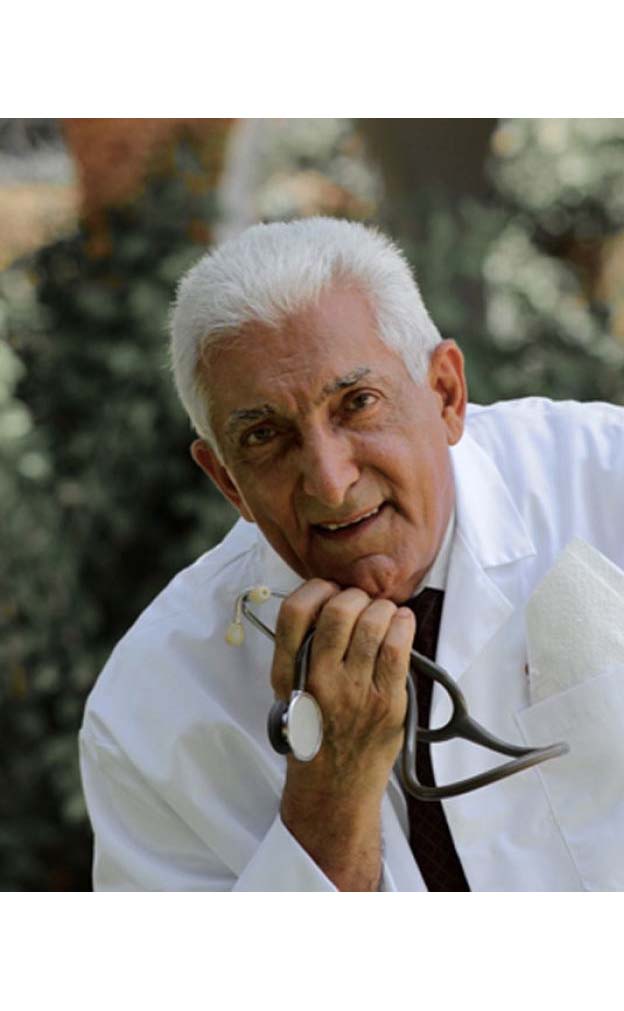
The
Importance of Disability Awareness and Getting Involved
Why
is Disability Awareness Important?
Millions of people with disabilities are
likely to spend a lifetime of unemployment and dependency and about 74.6
million people have some type of physical disability in the U.S. Unfortunately,
their employment and economic situation has not improved since the Americans
with Disabilities Act of 1990 was signed into law. Our society is filled with
prejudice and stereotypes towards disabled people.
Learning
about disabilities, the ADA, and taking part in awareness actives and events is
a step towards breaking these barriers and promoting change.
What
Does Disability Awareness Mean?
Understanding
that disability discrimination is unlawful is not enough anymore. A third of
people entering the workforce today will become disabled by the time they
retire. Disability Awareness means to educate people about disabilities, but
also provide them with the knowledge on how to carry out tasks regarding
disabilities. People can learn about disability awareness through classes,
training courses, or even from disabled people. Learning acceptance is
important but employers, businesses, and organizations must also understand
compliance with the ADA. Ultimately as an employer, it is important to
differentiate between what is good practice and what is not.
How
to Promote Disability Awareness?
The
first step in promoting disability awareness is education. Unfortunately, there
is a preconception in our society regarding disability. Sometimes there is
avoidance, fear or discomfort that surrounds it. Some people often wonder what
if it were them who was disabled. Disability Awareness Day is on July 16 and
Disability Employment Awareness Month is every year in October, while
Disability Awareness Week takes place every year during the spring towards the
end of May and the beginning of June. These annual awareness dates are set in
order to promote disabilities and educate people about them and the Americans
with Disabilities Act.
Though
it’s a great idea to get involved with awareness activities on these days, you
can promote disability awareness year-round. You can organize a disability
awareness event on your school’s campus that educates students about
disabilities. There are also many organizations and groups worth getting
involved with that promote disability awareness. The organization
Respectability helps reshape the attitudes of people with disabilities so that
there is inclusion for everyone. Several schools also have awareness groups
which put on events and educate the student body.
How
to Teach Disability Awareness?
More
and more educators and trainers are working disability awareness into their
teaching curriculums. It’s important that those teaching about disabilities and
the laws also understand them. Additionally, parents are also teaching their
kids about people with disabilities. How do we make sure we are providing
students and children with the right information? The main things we should be
teaching them is the importance of inclusion, understanding, and acceptance.
Not everyone is the same.
Employers,
too, must understand the laws surrounding disabilities. Disability
discrimination is unlawful and employers and companies need to understand this.
There is a portion of the Americans with Disabilities Act titled “Your
Responsibilities as an Employer” which highlights which employment practices
are covered under the act, who is protected, and who is covered. Employers can
educate themselves by researching and reading this portion of the Americans
with Disabilities Act, but also take classes and training regarding it.
Taking
the time to research, participate and enrol in courses about disability
awareness not only promotes education, but also allows people to share their
understanding about disabilities, the laws, and importance of acceptance.
The
hardest thing for any parent to hear is that their child has a physical or
mental disability. It may come as a complete shock; you may have thought that
your child was just a little slower than others their age.
It’s
no surprise that you’ll be heartbroken when you find out and that heartbreak
will very quickly turn to fear. You will be scared about having to care for
someone for many years to come who cannot get around on their own or may have
mental disability where they cannot communicate effectively.
After
the fear subsides and you realize you are not alone and your talk it out in
counseling and with your partner, the guilt and confusion is likely to set in.
You wonder if it’s caused by something you did while you were pregnant and you
wonder why on earth this has happened to your child.
Talking
to other parents who have children with disabilities and joining a support
group is the easiest way to deal with the news. These are great places to find
out about programs you can enrol your child into and how to care for someone
with a disability. You can request reading materials and find out everything
you need to know about the disability to help you make an informed decision
about what is best for your child.
Equality
Whatever
your child’s disability is, you need to take one day at a time. Children with
physical disabilities can quickly learn how to get around and enjoy themselves
as much as a healthy child. A wheelchair or a missing arm will not deter a
youngster from trying to do things and if you encourage them to be equal, do
things their siblings do and encourage them to be self-sufficient, they will
grow up to be able to live fruitful lives.
Enter
your disabled child into a program where they can learn new things and
experience new adventures. Encourage them as much as possible and avoid pity
for them, this is the worst thing you can do. They don’t need your pity they
need love and encouragement.
If
you feel like crying because you’ve watched your child trying to overcome an
obstacle for hours, don’t burst into tears. Encourage them as much as you can
and move into another room, let the tears out and return to offer more
encouragement.
Programs
There
are a lot of disability programs available where you child can learn a skill.
You may find that they are a computer genius and are able to work technical or
mathematical problems out quickly. Enter them into a program where they can
learn computer programming or how to fix computers.
There
are so many programs available for all sorts of disabilities. If your child is
encouraged and believes in himself there is no reason he will not flourish in
one of these programs. It may be making baskets and using his hands or being
technical and fixing electronics, but with a job to do they feel important and
are able to eventually become independent.
The
diverse nature of disability and an overview of how different disabilities can
impact on a person’s communication, access and participation in the community.
Information about disability and impact of different types of impairment,
including:
• Physical disability
• Intellectual disability
• Psychiatric disability
• Developmental and learning disability
• Sensory disability
• Presence of disease causing organisms
in the body
General
principles of appropriate language when referring to, and talking with people
with disability including practical exercises in applying appropriate language.
Access
considerations for people with different types of impairment, including:
• Physical access and mobility
• Communication barriers
• Transport
• Attitudinal barriers
• Structural barriers
• Financial barriers
Learning
objectives
Core
modules
• To gain better understanding of what
disability is.
• To identify entrenched myths and
misconceptions surrounding disability and people with disability.
• To recognise how these misconceptions
translate into everyday language and what respectful communication involves.
Supplementary
modules
• To enable participants to familiarise
themselves with possible situations they may encounter with people with
disability specific to their workplace.
• To build capacity of participants to
engage and deal respectful with people with disability in such situations.
There
are more than one billion people with physical and mental disabilities in the
world who must overcome challenges every day. One of those challenges is
encountering other people. As a society, we are all different and must
recognize the importance of acceptance.
Disability
awareness is very important when it comes to breaking stereotypes and overcoming
preconceptions regarding disabilities. Fortunately, there are many people
interested in getting involved with disability awareness and often wonder how
they can take part in making a change.
Disability
Awareness: 10 Things Parents Should Teach Their Kids about Disabilities
Parents are all over the board when it comes
to how they teach their kids about disabilities. Some scold their kids when
they ask what’s wrong when a person with a disability passes by, and other
parents are totally cool with letting their kids run around and approach us at
will. No two parenting techniques are alike.
But
there are a few things that are repeated. From telling their child to always
look away or giving them a generic viewpoint of people with disabilities,
mistakes on how to talk about us are abound. Since even the most well-meaning
parent can accidentally flub up, here are 10 ways to help give your kid a leg
up on how to think differently about disabilities.
1)
Answering “Why can’t they walk”
One
of the most common questions kids ask when they see someone who uses a
wheelchair is this, “Why can’t they walk?” Kids are naturally curious and have
no filter, which are without question one of their best and worst qualities. If
your child is younger, saying, “They just have an owie,” can be enough.
If
they’re older however, just be honest. “I don’t know, baby, but most likely
it’s because their nerves,” is all you need to say. My 6-year-old niece is a
great example. She’s still too young to understand the concept of a spinal cord
injury, so I just tell her my legs just don’t listen to me anymore, and she
understand it completely.
But
what’s great is once they fully understand, fear is erased.
2)
Don’t get mad when they get curious
While
it’s great so many parents want to make sure their kids don’t offend us, which
for some kids is a legitimate concern when it comes to sensitive people with
disabilities, getting angry with your child when they ask questions about our
disability should be avoided. Fear, shame or embarrassment is not what you want
your kids to feel in the presence of disability. I hear kids ask their moms
about me all the time. Cutest thing ever.
3)
Being different isn’t a negative thing
Instead
of putting a “sad story” spin on disability whenever they inquire about
someone, saying something along the lines of, “But it’s ok.” “The world is full
of people who are different,” is vital. We all get around in our own ways. As
long as we get there is the important part.
4)
Always ask before helping
A
lot of well-meaning parents like to teach their kids to help us whenever
possible. But it’s just as important to teach them to ask before helping so
they can appreciate our autonomy, and respect us as such. Teaching your child
to automatically jump to our aid is kind, but it can make it harder for them to
see us as a person apart from the chair. Letting them know we can do many
things on our own is a huge lesson for kids.
5)
Our wheelchairs aren’t oversized strollers
Seeing
a wheelchair as our “legs” is another big lesson to drive home. Kids can come
up with some hysterical words when referring to a wheelchair – a mini car, a
wagon, a “what’s that” (my personal favourite), but don’t let them go on
thinking of our wheelchair as a stroller. Kids like to, but driving home the
notion of a wheelchair as being an empowering object, not one that symbolizes
helplessness, can make a huge impact.
6)
Be careful how you react yourself
It’s
no secret kids are sponges and instantly sense whatever mom or dad is feeling.
Feeling nervous, awkward or afraid around people with disabilities will only
make your kids feel exactly the same way. Try to put those feelings aside in
the best interest of your kids. Respond positively and calmly when encountering
a person with a disability and they’ll do the same (and hopefully into
adulthood too).
7)
A 10-second stare is ok
When
it comes to staring, kids get a “Get of Jail Free” card. At least that’s how I
feel about things. As long as it’s not a long drawn out stare that is, which in
that case you should tell them, “Looking is ok, but not too long.” I say this
because it always saddens my heart whenever I see a parent scold their children
for looking at a person with a disability for a brief moment. Kids are shiny
new people learning about the world. Their innocent glances are 100 percent ok.
For
Further information Government Disable Association, Email to
drh_azadehmd@yahoo.com, or Text only to 002207774469/3774469
Author
DR AZADEH Senior Lecturer at the University of the Gambia, Senior Consultant in
Obstetrics & Gynaecology, Clinical Director at Medicare Health Services
Read Other Articles In Article (Archive)
It takes two to build firm cooperation
Sep 19, 2014, 9:56 AM
UTG Convocation: another plus in National development!
Feb 13, 2020, 1:10 PM



